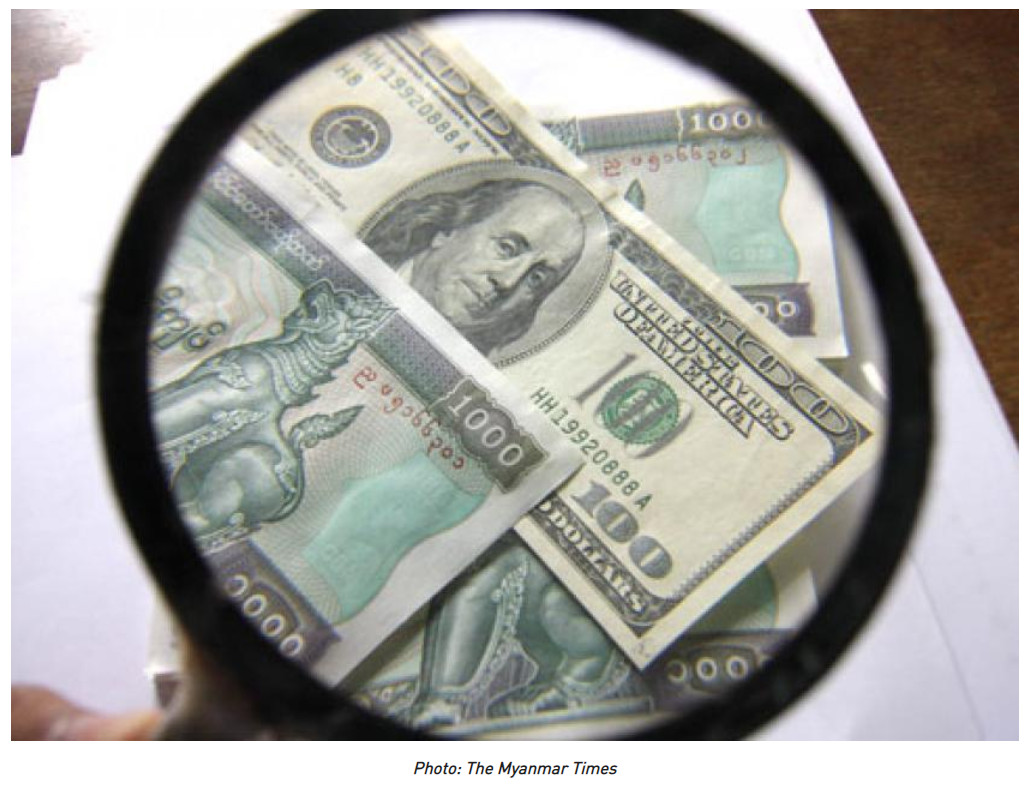Myanmar opens up to seven more Asian banks
Myanmar has granted operating licences to seven Asian banks, bringing to 20 the number of foreign banks allowed to do business in the previously isolated market.
Bank of China (Hong Kong), Taiwan’s Cathay United Bank and Mega International Commercial Bank, Industrial Bank of Korea, Seoul-based KB Koomin Bank, Korea Development Bank and Siam Commercial Bank of Thailand were granted preliminary licences, the central bank’s licensing committee said in a statement on Friday (April 9).
The approval gives the lenders nine months to demonstrate they can fulfill business plans laid out in their application to the authorities before they will be given proper licences, the statement said.
This licensing round was opened last November with hopes of drawing foreign investments at a time the government was under pressure to speed up economic reforms before the parliamentary elections expected later this year.
A branch licence allows a range of wholesale banking activities, while a subsidiary licence allows both wholesale and, from January 2021, onshore retail banking services. A branch licence and subsidiary licence require a minimum paid-in capital of US$75 million and $100 million respectively.
The Myanmar Times understands that more than 10 foreign banks, including Taiwan’s First Commercial Bank and China Trust Banking Corp, Korea’s KEB Hana, Kasikorn Bank and Krungthai Bank of Thailand, and Commercial Bank of Ceylon, had been considering applying for preliminary licences. The central bank did not say how many had submitted applications.
The seven licences were the first granted since Daw Aung San Suu Kyi’s National League for Democracy party formed a government in 2016.

There were two licensing rounds under U Thein Sein’s government. The first in 2014 saw nine banks awarded, and the 2016 round granted licences to four Asian banks.
In total, there are 13 non-Myanmar lenders currently allowed to operate in a limited capacity. Another 51 banks and finance companies have representative offices, while there are 27 local banks. Banking services are still severely limited in the country and are dominated by financial institutions with ties to the former military regime.
The lack of western participation could be due to the market risks heightened by the Financial Action Task Force (FATF) which in February put Myanmar back on its “grey list” of states perceived as prone to money laundering and terror financing.
The FATF grey list designation will add to the already significant reputational and other risks of doing business in Myanmar, leading to more risk-averse international banks to stay away.
But Yangon-based executives say the grey-listing is merely one more factor that makes it difficult for Western banks to invest. They say it is not surprising that foreign interest is dominated by Asian banks because Asian economies are Myanmar’s main investment and trade partners.
Some industry observers noted the positive signal sent by the licences amid a tough global economy.
Jeremy Mullins, country director at Vriens and Partners, a Southeast Asia-focused advisory firm, said the licencing is “a real vote of confidence” in the Myanmar market potential.
“It’s a rare bit of good news during turbulent economic times,” he said. “There aren’t many countries that offer the medium and longer term opportunities of Myanmar, and that’s why we’re seeing so much interest particularly from regional banks.”
Separately, the central bank has also approved Kasikorn Bank’s equity purchase in Ayeyarwaddy Farmers Development Bank (A Bank).
The statement did not mention the percentage but The Myanmar Times earlier reported that the Thai bank was looking to buy a 35 percent stake in A Bank.
A Bank is the second Myanmar private lender to have a foreign shareholder after Yangon-headquartered Yoma Bank.
Source: https://www.mmtimes.com/news/myanmar-opens-seven-more-asian-banks.html


 Thailand
Thailand




